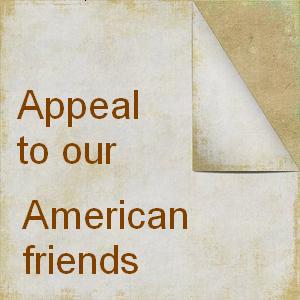In reaction to Judge Goodey's finding that libellous statements against him are “in the public interest” and justified, Dr. Dan Roodt of Praag (Pro-Afrikaner Action Group) described it as a “blow to freedom of speech and justice”.
“Quite possibly, we are seeing here the first effects of an ideologically 'transformed' judiciary in which controversial cases with racial connotations are constantly decided in favour of the dominant ideology or political correctness,” Roodt said. “This judgement also opens the door for the vilification of dissidents and even hate speech against the white and Afrikaner minority. We recently saw how Mr. Atholl Trollip of the liberal DA stereotyped Afrikaners without exception as 'Nazis' in an email to Mr. Jaap Kelder. I seem to recall that even ten years ago when I had first voiced a diffident concern over the continued existence of the Afrikaans language I had already been declared a heretic and a Nazi.”
Roodt was of the opinion that the Cape Town newspaper Die Burger and the mixed-race or Coloured elite of the Western Cape was engaged in a campaign targeting him personally. “Ironically, this is the second time that I have lost a court case on freedom of expression. The first time was as a student in the then Taaldoos case in Johannesburg where I had to pay the price for the four-letter words of author and singer Koos Kombuis and at least one Naspers journalist writing under a pseudonym. Currently the same sycophants and conformists who used to defend censorship in the past is establishing a new and more insidious form of censorship.”
The labelling of Roodt as a “racist” by Scholtz and others took place as a result of his comments on violent crime and farm murders which are being committed mainly by young male members of certain races. According to Roodt, “this new censorship which is currently being instituted is not only worse than the old type, but it makes honest commentary about the violence, crime and corruption raging in our country increasingly impossible. Even academic research on dysfunctional groups or sub-groups in society will henceforth be impossible, out of fear that researchers would be stigmatised as 'racists' by the mainstream media in their witch hunt.”
Roodt thanked his supporters, including his large international body of fans, for their loyalty and said: “It is a bitter pill to swallow that the court also made a punitive costs order against me, in favour of the gigantic Naspers corporation with its five billion rands' (about USD 700 million) worth of annual after-tax profits. Clearly, besides the assault on my dignity and reputation, I have now been punished for daring to rise up against the power of Big Brother.”
The leader of Praag said that the struggle for freedom of speech and justice in South Africa “could only get more intense as a corrupt oligarchy took control of the country, promoting racial hatred against the European minority, specifically the Afrikaner. Whether Leopold Scholtz and Die Burger wanted to know it or not, they are finding themselves in the same camp as ANC Youth Leader Julius Malema with his “Shoot the Boer” songs. Historically they are fighting side by side with those who tried to destroy the Afrikaner nation, from the Zulu king Dingane to the British Lords Milner and Kitchener.”
Roodt welcomed the recent publication of two books on respectively the racial problems of South Africa and those of the USA by two American writing colleagues. Ilana Mercer's Into the cannibal's pot – lessons for America from post-apartheid South Africa and Jared Taylor's White identity – racial consciousness in the 21st century would, according to him, “shake the country as never before. Leopold Scholtz and Die Burger may think that their brand of anti-white racism – we now seemingly have carte blanche (sic) to call each other 'racists' – has been elevated to the status of unquestionable dogma, but thanks to the internet and book publications they will not succeed in silencing intellectual and political debate in South Africa.”
Â






